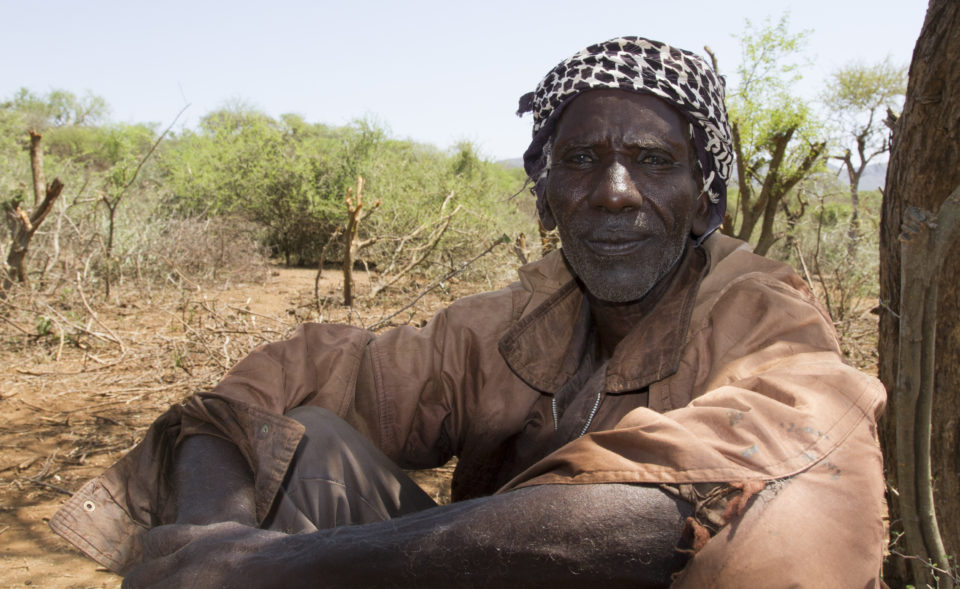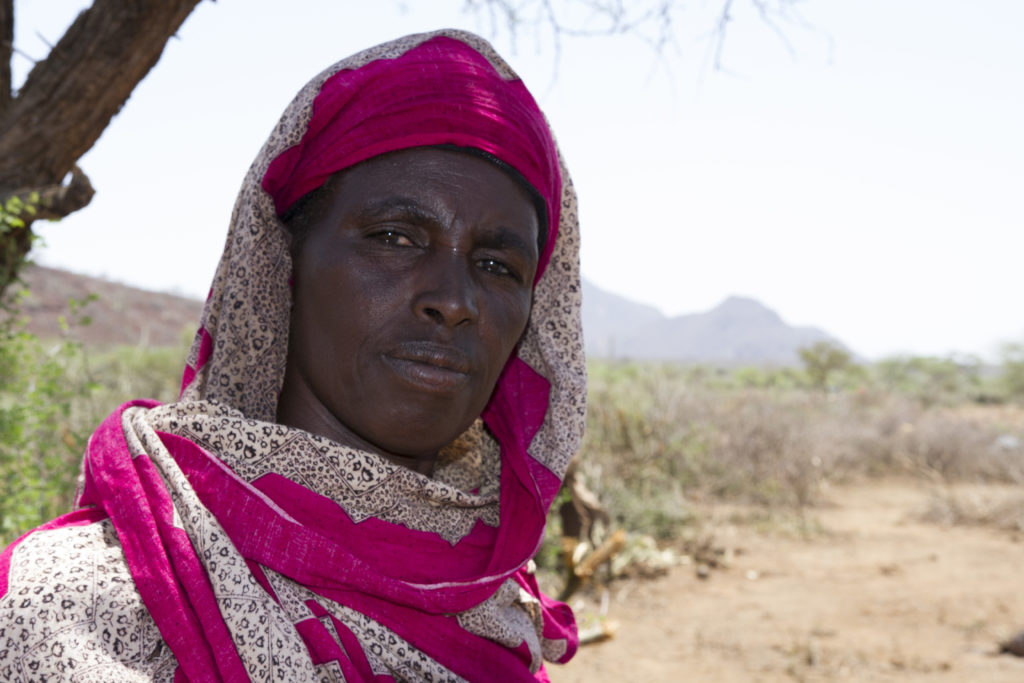 Stories
Stories
March 31, 2017 • 3 min read
"I don’t know what to do. I am not going to somewhere else like the others. I will stay here and die.”

"With over 17 million people in East Africa currently suffering from an emergency food crisis, GOAL’s Anteneh Tadele travelled to Borena Zone in south Ethiopia, where he spoke with a number of people who have been directly affected."
The food crisis in East Africa is being attributed to widespread drought due to poor rainfall between October and December, 2016. Ongoing conflict has worsened the situation in some countries, leading to a recent famine declaration in parts of South Sudan, and famine conditions in Somalia.
According to current estimates, more than 5.6 million people in Ethiopia are in desperate need of food. This latest drought struck Ethiopia before it could recover from the effects of the devastating El Niño-induced drought in 2015 and 2016 which left millions in urgent need of aid.
Seventy-five year old pastoralist, Karu Duba, from Megado Kebele in Dire Woreda, explained how the drought has devastated his herd of cattle and how that, in turn, is impacting directly on the most vulnerable members of his family.
“My life was dependent on raising cattle but they are gone now because of the drought. I had about 200, but now I only have 20 left and they are not well. The cattle were my means of income generation and I used what they produced to feed my family. Now I have lost them and I have no idea what to do. The cattle that I have now are not productive. They can’t give milk. No one even want to buy them.
“I am receiving support from the government but not enough to feed my family. I have eight children. One of my children is under five, but I have nothing to feed him.
“Because of this drought, many of my neighbours migrated to different areas but they are coming back now empty-handed because the drought is the same everywhere.”
Forty-eight year-old Guya Turko from the same area tells a similar story. She too was dependent on her herd, which has been reduced from 16 cattle to two in the space of one month.
“The drought took them all. I brought the two remaining cattle here to feed them grass but I don’t think they will survive.”
Guya’s situation is stark. She has seven children to feed and care for, and she is alone; her husband passed away three years ago.
“Before, I was feeding my children from what my cattle produced, like milk and meat. I also sold some of them and used the money for different family needs. But now I need support. Now, one of my child is malnourished and I don’t have anything to feed him to make him stronger.
Fifty year-old Adi Goticha has seven children – four boys and three girls. She is also a widow. She realises better than anyone the predicament of her situation, but she is determined to stay at home, no matter what.
“I am poor. I had 10 cattle, but within one month I lost five. Now they are not well and if I lose the rest, I will have no hope to live because they are my life. I don’t have anything besides them. I don’t know what to do. I am not going to somewhere else like the others. I will stay here and die.”
GOAL is currently implementing a country-wide humanitarian emergency response programme in Ethiopia aimed primarily at responding to drought, food insecurity, malnutrition and disease outbreak.
We are supporting hundreds of thousands of people across the country. These include, in the main, children under five, pregnant and lactating women, South Sudanese and Eritrean refugees, rural communities, pastoralist and agro-pastoralists
Our work includes the implementation of life-saving nutrition programmes aimed at preventing, detecting and treating severe and moderate acute malnutrition resulting from periods of drought and hunger; and ensuring drought-affected communities have access to clean water.
In Borena Zone, GOAL is upgrading and improving water supply systems; proving hygiene and sanitation training; and providing veterinary medicine and logistics support for people who work with livestock.
But our work alone will not be enough. The international community must respond quickly to prevent famine from occurring in other parts of East Africa and to prevent death on wide scale.
For those who wish to donate to GOAL’s East Africa appeal, please click on the link below.
Karu DubaGuya TurkoAdi Goticha


